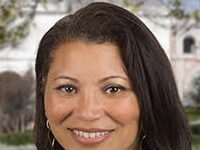 Decades of redlining — a longstanding banking practice that blocked people of color from getting mortgages — continue to perpetuate racial and socioeconomic inequality in the San Francisco Bay Area and across the country, according to ongoing research from the University of California, Berkeley School of Public Health.
Decades of redlining — a longstanding banking practice that blocked people of color from getting mortgages — continue to perpetuate racial and socioeconomic inequality in the San Francisco Bay Area and across the country, according to ongoing research from the University of California, Berkeley School of Public Health.
Communities with a higher proportion of nonwhite residents were deemed inherently risky – and outlined in red on maps banks used to decide where they would make mortgage loans. This discriminatory system was widespread and prevented nonwhite residents from obtaining mortgages. It created generations of injustice as many White Americans built home equity that they could pass down to their children while most nonwhite Americans could not.
Although the practice has been illegal since 1968, multiple studies show that redlining’s harmful legacy has left nonwhite communities struggling with air pollution, reproductive health disorders, and fewer urban amenities more than 50 years later.
Discriminatory lending practices continue to have devastating effects on low-income and people of color nearly 100 years after the first redlined maps were created by the Home Owners’ Loan Corporation in 1933. Residents in historically D-graded neighborhoods are highly susceptible to serious health complications such as cardiovascular disease and maternal morbidity due to decades of strategic disinvestment. Without considerable intervention to supply cleaner air, access to parks, and other environmentally enriching amenities to vulnerable communities, this trend is likely to continue, researchers say.












